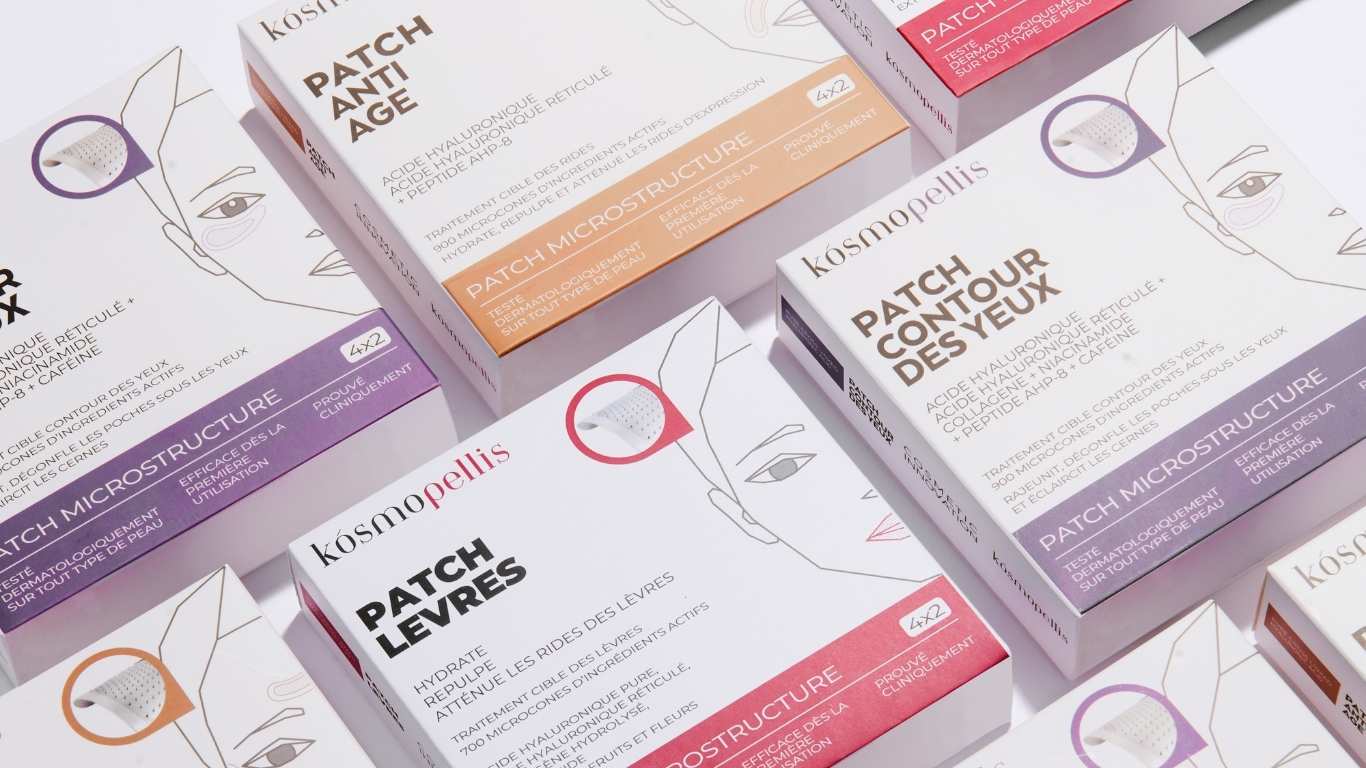
Stress and Your Skin: How to Manage Them Effectively
Introduction
Understanding the connection between stress and skin problems may seem complex, but it is essential to maintaining a healthy appearance. Stress triggers a series of chemical reactions in our body that can alter the condition of our skin. These reactions can lead to problems like acne, dryness, irritation and even premature aging.
Stress can have a huge impact on the health and appearance of our skin. In this article, we will explore in detail the different effects of stress on the skin and provide you with effective tips to manage and prevent these problems.
Effects of stress on the skin
- Acne : worsening of acne breakouts in predisposed people.
- Dehydration : dry skin prone to irritation.
- Premature aging : appearance of wrinkles and loss of firmness.
By understanding these mechanisms, you will be better equipped to adopt effective strategies to protect your skin against the harmful effects of stress.
1. Acne: a common problem exacerbated by stress
Acne is a common skin condition that affects many people, especially those who are predisposed to having oily or blemish-prone skin. Stress plays a significant role in worsening this condition.
Exploring How Stress Can Make Acne Worse
When you are stressed, your body releases various hormones to cope with the situation. Among these hormones, cortisol stands out for its effect on the skin. It stimulates the sebaceous glands, thereby increasing sebum production. This excess sebum can clog pores and encourage the formation of pimples and blackheads.
Stress doesn't just increase sebum production. It also disrupts hormonal balance, which can lead to more frequent and severe acne breakouts. People who are already prone to acne may see their condition worsen during periods of intense stress.
Underlying mechanism: role of substance P
Substance P is a neuropeptide released by the central nervous system in response to stress. It plays a crucial role in increasing sebum production and acne formation.
- Increased sebum : Substance P stimulates the sebaceous glands, thereby increasing the amount of sebum produced.
- Acne Formation : Excess oil combined with dead skin cells and bacteria can clog pores, leading to breakouts.
Studies show that high levels of substance P are often correlated with increased acne symptoms in stressed people.
Tips for Managing Stress-Related Acne
To reduce the impact of stress on your skin and manage acne effectively, here are some strategies:
Skincare routines :
- Use gentle cleansers to avoid irritating your skin.
- Apply products with ingredients like salicylic acid or benzoyl peroxide to treat blemishes.
- Incorporate a non-comedogenic moisturizer to lock in hydration without clogging pores.
Beneficial ingredients :
- Niacinamide : reduces inflammation and regulates sebum production.
- Hyaluronic acid : hydrates without weighing down or clogging pores.
- Vitamin C : helps reduce acne scars and brightens the complexion.
Stress management :
- Practice relaxation techniques like yoga or meditation to reduce cortisol levels.
- Do regular physical exercises to improve blood circulation and eliminate toxins.
- Establish a regular sleep routine to allow your skin to repair itself overnight.
Taking care of your skin while actively managing your stress can significantly decrease stress-related acne breakouts and improve the overall appearance of your skin.
2. Impact of stress on skin hydration and sensitivity
Stress can lead to skin that is dry, dehydrated, and prone to irritation. This phenomenon is explained by the influence of stress hormones on the protective function of the skin barrier.
How Stress Can Lead to Dry, Itchy Skin
When you are under prolonged stress, your body releases hormones such as cortisol and adrenaline. These hormones trigger a cascade of reactions that can harm your skin's moisture balance. An increase in cortisol can decrease the production of essential lipids, weakening the skin barrier and leading to greater transepidermal water loss. The consequence is dry, dehydrated skin and more susceptible to irritation.
Some common signs of stress-induced dryness and irritation:
- Rough, scaly skin
- Redness and inflammation
- Pulling sensations
- Pruritus (itching)
Influence of stress hormones on the skin barrier
The skin barrier plays a crucial role in protection against external aggressions such as pollutants, allergens and microorganisms. Cortisol, a key stress hormone, has a deleterious effect on this protective barrier. By reducing the production of ceramides, lipid components essential to the integrity of the skin barrier, cortisol makes your skin more vulnerable to external aggressions.
Direct effects of cortisol on the skin barrier:
- Decreased production of ceramides
- Increased skin permeability
- Reduction of self-repairing abilities
Role of moisturizing and soothing treatments
To counter the harmful effects of stress on your skin, it is essential to adopt a suitable skincare routine that focuses on hydration and soothing. Products containing hydrating ingredients like hyaluronic acid , ceramides or peptides can help restore your skin's natural hydration.
Key ingredients for effective care:
- Hyaluronic acid: attracts and retains water in the superficial layers of the skin.
- Ceramides: strengthen the lipid barrier to prevent water loss.
- Peptides: stimulate natural collagen production to improve elasticity.
Alongside topical treatments, adopting stress management techniques such as meditation, yoga or even regular exercise can also help restore a hormonal balance favorable to better skin health.
The importance of a holistic approach should not be underestimated when it comes to treating stress-related skin issues. A judicious combination of appropriate external care and internal stress management can make all the difference in regaining healthy, glowing skin.
3. Premature aging: wrinkles, fine lines and loss of firmness
Chronic stress plays a crucial role in the natural aging process of the skin. When we are constantly under pressure, our body produces a hormone called cortisol . This hormone has several deleterious effects on our skin, including the breakdown of collagen and elastin , two essential proteins that keep the skin firm and elastic.
Impact of cortisol on skin aging
- Collagen breakdown : Cortisol accelerates the breakdown of collagen, a protein that gives our skin its structure and strength. Less collagen means more wrinkles and loss of firmness.
- Loss of elastin : Elastin is responsible for skin elasticity. With high levels of cortisol, this protein deteriorates more quickly, leading to skin that is less supple and more prone to fine lines.
- Increased inflammation : Stress also triggers inflammatory responses in the body, causing further damage to skin cells.
Anti-aging strategies to counter stress-induced signs of premature aging
To reduce the harmful effects of stress on your skin, it is essential to adopt effective strategies:
Use of antioxidants
- Serums containing antioxidants such as vitamin C can neutralize free radicals generated by stress and protect against cellular damage.
Intense hydration
- Proper hydration helps keep the skin barrier intact and prevents loss of elasticity. Use products containing hyaluronic acid to draw water into the deeper layers of the skin.
Products enriched with peptides
- Peptides stimulate the natural production of collagen and elastin, helping to restore lost firmness and elasticity.
- Kósmopellis Microneedle Patches: These innovative patches use microneedles to deliver active ingredients such as hyaluronic acid and peptides directly into the skin, providing deep hydration and stimulating cell regeneration. There are two patches: anti-aging and eye contour patches. This technology offers remarkable results from the first use. A classic cream has a penetration rate of <30%. Conversely, the microneedle patch reaches a rate of 80%.
Soothing skincare routine
- Incorporate calming ingredients like aloe or chamomile to reduce inflammation and calm skin irritations caused by stress.
Stress management techniques
- Meditation, yoga, and deep breathing exercises can help reduce cortisol levels in your body.
Restorative sleep
- Getting enough sleep allows your skin to regenerate naturally. Aim for 7 to 9 hours per night for optimal recovery.
Every effort you make to manage your stress reflects directly on your skin, delaying the visible signs of stress-induced premature aging. Adopting these strategies can not only improve the appearance of your skin but also contribute to increased overall well-being.
4. Manage stress for healthier skin
The importance of a holistic approach
Stress not only affects our emotional well-being, but also the health of our skin. A holistic approach to stress management is crucial to mitigating these effects. It involves a combination of proper skin care and stress management techniques to improve your overall quality of life.
Beneficial role of physical exercise
Regular exercise plays a vital role in reducing stress and improving skin health. When you exercise, your body releases endorphins, often called "happy hormones," which improve your mood and reduce levels of the stress hormone cortisol. By increasing blood circulation, exercise helps nourish skin cells and maintain their vitality.
Relaxation and stress management techniques
Adopting relaxation techniques can significantly reduce stress levels:
- Meditation : Meditation helps calm the mind and reduce cortisol levels. A few minutes a day can be enough to see beneficial effects on your skin.
- Deep breathing : Practicing deep breathing exercises increases oxygen intake, thus promoting better cell regeneration.
- Yoga : Yoga combines physical exercise and meditation, providing an integrated approach to reducing stress and improving overall well-being.
These techniques not only help manage stress but also prevent its negative effects on the skin.
By incorporating these practices into your daily routine, you can not only improve your emotional well-being but also maintain the health and appearance of your skin. It may seem difficult to find time for these activities, but remember that taking care of your skin is also a form of self-care. By investing time and effort into your emotional well-being, you'll reap the benefits of healthier skin and a natural glow. So, give yourself a few minutes each day to relax, meditate, breathe deeply, or practice yoga – your skin will thank you.
Conclusion
Adopting a comprehensive skin care and stress management routine can help alleviate the damaging effects of stress on our skin. A holistic approach that combines topical care, a balanced diet and relaxation techniques is essential to maintaining healthy skin. By taking care of our skin from the inside and out, we can not only improve its appearance but also strengthen its resilience in the face of stressful attacks. So, remember to pay special attention to your skin and emotional well-being. Your skin will thank you.
Some key steps include:
- Use of beneficial ingredients like antioxidants, humectants, and peptides (e.g., vitamin C serum, hyaluronic acid).
- Regular exercise to improve blood circulation and tissue hydration via the release of endorphins.
- Relaxation techniques such as meditation, deep breathing and yoga to manage daily stress.
If you are experiencing severe chronic stress that is affecting your quality of life, it is also important to seek professional support. A dermatologist or psychologist can offer personalized advice and treatments tailored to your specific needs. Adopting these practices into your daily routine may initially seem like a daunting task, but the results will be worth it. Your skin will be more radiant and resilient, and you will feel more balanced and healthier overall. Take care of yourself, inside and out, and your skin will thank you.
